On Tuesday, May 22, Legacy Tower at Texas Children’s Hospital officially will open its doors to care for our most critically ill patients and their families. But before that day arrives, a lot of preparation and training is underway to get ready for opening day which is less than two weeks away.
Last month, multidisciplinary teams successfully completed a series of simulated patient care scenarios inside the Legacy Tower’s state-of-the-art pediatric intensive care unit (PICU), Progressive Care Unit (PCU) and OR/MRI suite to test the workflow processes in the new patient care spaces and address any potential safety concerns before the new building opens.
“For the PICU, we really focused on creating a virtual unit,” said Dr. Cara Doughty, medical director at Texas Children’s Simulation Center. “We wanted the team to participate in all of the routine work flows as well as participate in crisis scenarios and patient decompensations and codes that might happen in a PICU setting.”
In addition to clinical staff, patient families from Texas Children’s Family Advisory Committee participated in the PICU simulations and provided their perspective on how much this space is going to change the way that care is provided to children and families at Legacy Tower.
A few weeks after the PICU and PCU simulations, patient care scenarios were conducted in the operating room and MRI suite of Legacy Tower to address any potential latent safety threats and concerns before the new tower opens its doors to patients and their families.
“Our focus is not as much on design now, it’s really around those processes,” said Maria Happe, clinical senior project manager of Texas Children’s PICU Services. “We want to ensure our processes are correct, and that we ensure our training matches what we want to do and how we want to operate in this new space.”
Once the first phase of Legacy Tower opens on May 22, the tower will house new operating rooms with one intraoperative MRI, as well as a new PICU which will span four floors and open with six ORs and 84 ICU beds, including dedicated surgical, neuro and transitional ICU beds.
When phase two of the Legacy Tower opens in fall 2018, the tower will be the new home of Texas Children’s Heart Center® – ranked No. 1 in the nation by U.S. News & World Report in cardiology and heart surgery. The Heart Center will have an outpatient clinic, four catheterization labs with one intraprocedural MRI, cardiovascular intensive care unit, four cardiovascular ORs and cardiology acute care beds. The tower also will have a helistop, allowing for even greater access to Texas Children’s most critically ill patients.
The Legacy Tower project would not have been possible without tremendous collaboration from teams and departments across the organization. Click here to view the Legacy Tower Activation Teams and Departments that played an integral role in the design, construction and activation of Legacy Tower.
Employees and staff can see more of Legacy Tower on Connect throughout the month. Texas Children’s Corporate Communications Team will feature a series of stories and videos on Connect promoting Legacy Tower and sharing how we are preparing for this historic move.


 From our three hospital campuses to our health centers, urgent care and pediatric practices, Texas Children’s continues to focus its efforts on enhancing patient access. Since implementing solutions for the first two waves of specialties over the last two months, patient families are noticing a positive difference.
From our three hospital campuses to our health centers, urgent care and pediatric practices, Texas Children’s continues to focus its efforts on enhancing patient access. Since implementing solutions for the first two waves of specialties over the last two months, patient families are noticing a positive difference.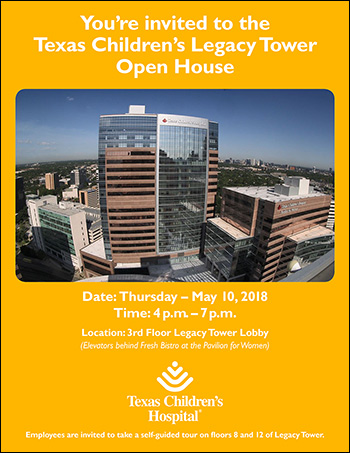
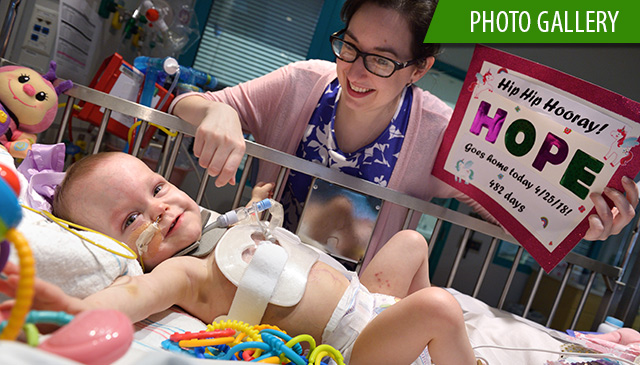 Hope Elizabeth Richards, one of the formerly conjoined twin girls separated at Texas Children’s earlier this year, was discharged April 25 after spending 482 days in the hospital. Hope joined her sister, Anna Grace, who was discharged on March 2.
Hope Elizabeth Richards, one of the formerly conjoined twin girls separated at Texas Children’s earlier this year, was discharged April 25 after spending 482 days in the hospital. Hope joined her sister, Anna Grace, who was discharged on March 2.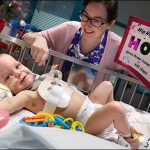
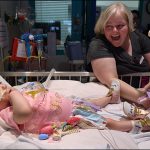
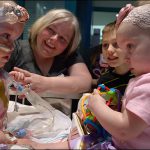
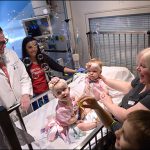
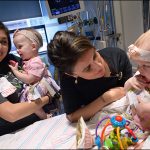
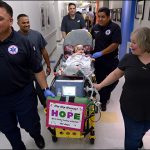
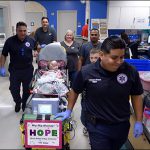
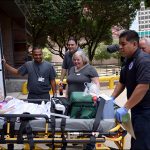
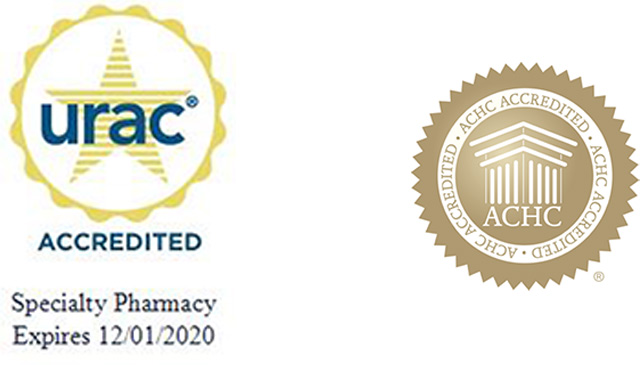
 Dr. Huda Zoghbi, director of the Jan and Dan Duncan Neurological Research Institute at Texas Children’s, Howard Hughes Medical Institute investigator and professor at Baylor College of Medicine, has been awarded the sixth annual Ross Prize in Molecular Medicine by The Feinstein Institute for Medical Research at Northwell Health.
Dr. Huda Zoghbi, director of the Jan and Dan Duncan Neurological Research Institute at Texas Children’s, Howard Hughes Medical Institute investigator and professor at Baylor College of Medicine, has been awarded the sixth annual Ross Prize in Molecular Medicine by The Feinstein Institute for Medical Research at Northwell Health.